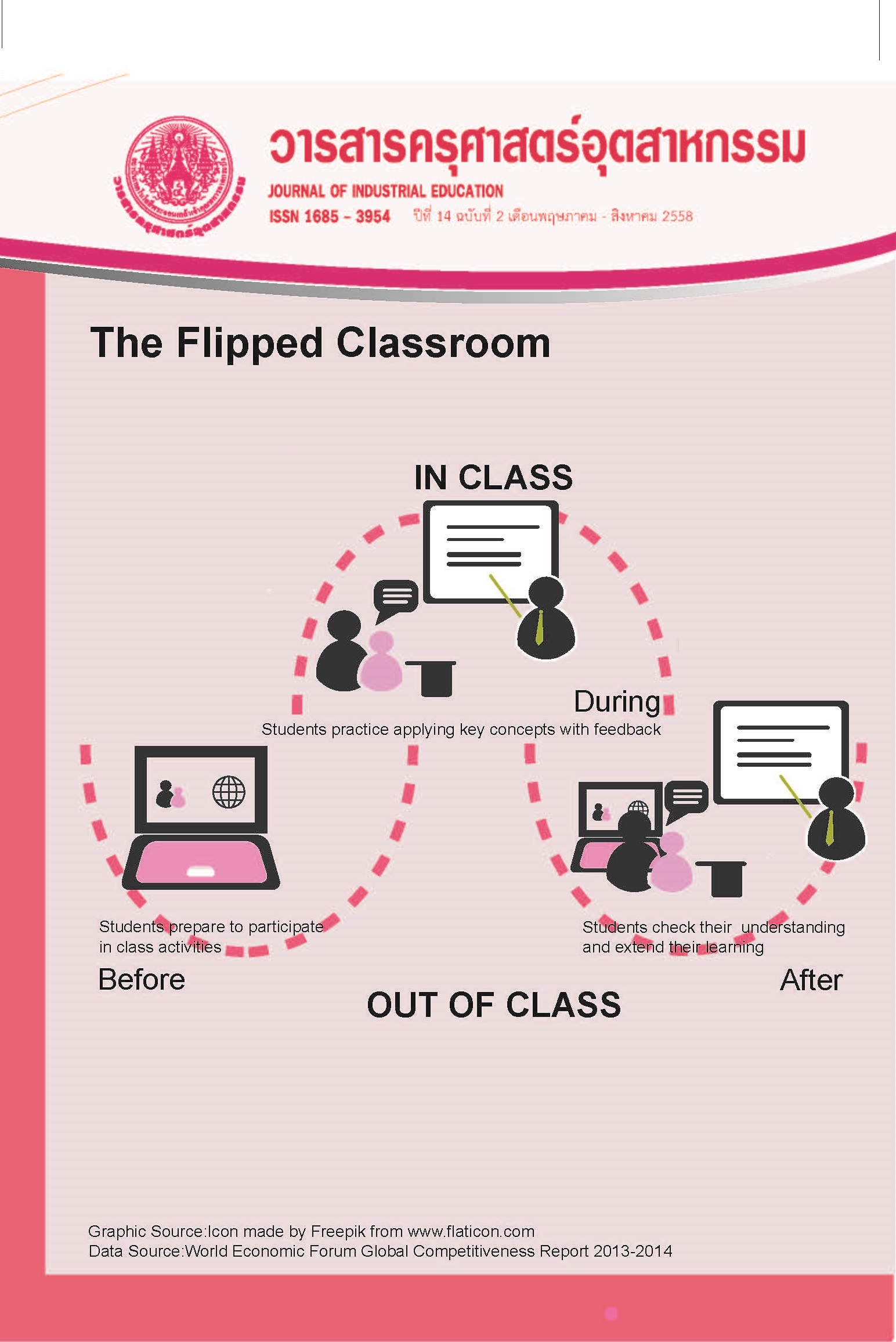Teaching by Using Ethical Resource Base Learning for 21st Century Learner
Keywords:
Ethical Resource, Ethical Resource Base Learning, 21st Century Learner, 21st Century SkillsAbstract
The article were to provide understanding about ethical resource base learning and 21st century skills to guideline using ethical resource base learning for develop 21st Century Learner. The activities of ethical resource base learning include: 1) providing content, resources and learning resources, 2) offer knowledge, skills, attitudes and experience to arouse interest for discussion of students, 3) select ethical resource, 4) group process to studies the area of ethical resource, the teacher's role to provide assistance and facilitate, 5) discussion knowledge in order to apply this knowledge in other situations, 6) explores attitudes to learning activities using ethical resource, 7) presents a performance with multimedia and 8) summary and evaluation activities group. Such activities consistent with the goals of learning in the 21st century skills, there elements follow as: 1) content knowledge has two parts: key subject and interdisciplinary knowledge, 2) skills consist of learning and innovation skills, life and career skills and information media and technology skills, and 3) features include: work, learning, and moral.
References
Office of the Education Concil. 2014. Nation Education (No.3) 2010. Retrieve August 1, 2015, from https://www.onec.go.th/onec_web/page.php?mod=Category&categoryID=CAT0000011.
[2] ฐิติยา เนตรวงษ์. 2557. การพัฒนาทักษะทางเทคโนโลยีสารสนเทศและจิตอาสาด้วยการเรียนแบบผสมผสานและโครงการรับ ใช้สังคมเป็นฐาน. วารสารครุศาสตร์อุตสาหกรรม, 13(3), น. 59-65.
Netwong, T. 2014. Development of Information Technology Literacy and Volunteers by Using Blended Learning and Society Service Project Based Learning. Journal of Industrial Education. 13(3), p. 59-65.
[3] สรรเสริญ อินทรัตน์ และคณะ. 2557. ผลการจัดการเรียนการสอนแบบบูรณาการคุณธรรมจริยธรรมตามแนวคิดหลักปรัชญาของ เศรษฐกิจพอเพียงในรายวิชาเทคโนโลยีสารสนเทศ มหาวิทยาลัยราชภัฏสวนดุสิต. วารสารครุศาสตร์อุตสาหกรรม, 13(3), น. 113-119.
Intharat, S., et al. 2014. The Effectiveness of an Approach to Integrate Ethics into Information Technology by Following Sufficiency Economy Philosophy, Suan Dusit Rajabhat University. Journal of Industrial Education, 13(3), p. 59-65.
[4] ศูนย์คุณธรรม. 2557. การพัฒนาแหล่งเรียนรู้เชิงคุณธรรม. กรุงเทพฯ : ศูนย์คุณธรรม (องค์การมหาชน).Moral Promotion Center. 2014.
Development of Moral Learning Resource. Bangkok: Moral Promotion Center (Public Organization).
[5] วรพจน์ วงศ์กิจรุ่งเรือง และอธิป จิตตฤกษ์. 2554. ทักษะแห่งอนาคตใหม่ : การศึกษาเพื่อศตวรรษที่ 21. กรุงเทพฯ: โอเพ่น เวิลด์ส.
Wongkitrungroung, W. & Jittaruke, A. 2011. Skills for The Future: Education for 21st Century. Bangkok: Open World.
[6] สำนักงานคณะกรรมการการศึกษาขั้นพื้นฐาน. (ม.ป.ป.). แนวทางการจัดทักษะการเรียนรู้ในศตวรรษที่ 21 ที่เน้นสมรรถนะทาง สาขาวิชาชีพ. สำนักบริการงานการมัธยมศึกษาตอนปลาย สำนักงานคณะกรรมการการศึกษาขั้นพื้นฐาน.
Office of The Basic Education Commission. (n.d.). Guidelines for 21st Century to Learning Skills Focus on Professional Performance. Upper Secondary Education Office of The Basic Education Commission.
[7] กาญจนา บุญภักดิ์. 2558. ทักษะและเทคนิคการจัดการเรียนรู้สู่ความเป็นเลิศ.วารสารครุศาสตร์อุตสาหกรรม, 14(1), น. 1-4.
Boonphak, K. 2015. Skill and Technical Learning Management to Excellence. Journal of Industrial Education, 14(1), p. 1-4.
Downloads
Published
How to Cite
Issue
Section
License
"The opinions and contents including the words in papers are responsibility by the authors."
"ข้อคิดเห็น เนื้อหา รวมทั้งการใช้ภาษาในบทความถือเป็นความรับผิดชอบของผู้เขียน"



